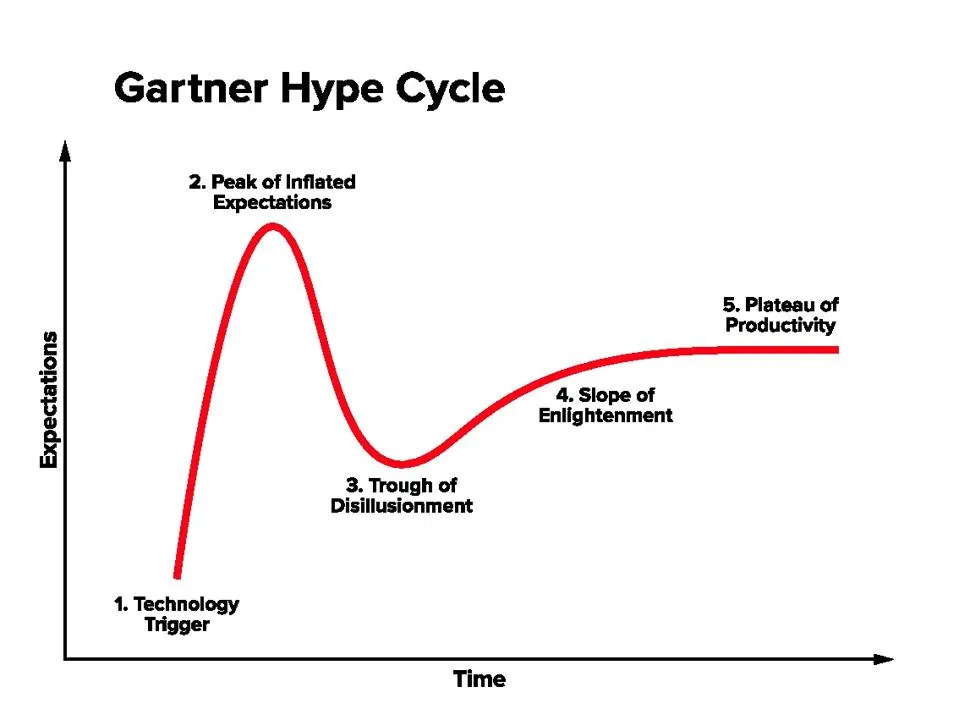Paddy Lambros shares his playbook for getting hired, after recruiting for 100s of VC-backed founders.
Previously a talent director at Atomico and now the founder of Dex, a career co-pilot startup, Paddy shares insights for job applicants, founders, and recruiting entrepreneurs in this week's edition
Hiring is broken.
As much as I dislike the cliche, it’s fair to say that hiring has become more challenging, not easier, in the last few years. Recruiting remains one of the meatiest yet most underestimated problems. There’s a graveyard of startups that set out to solve the “simple” problem of recruiting, only to quickly discover that it’s much harder than it seems. Paddy Lambros is acutely aware of this phenomenon.
“
The reality is that recruitment is hard. There's a reason that the recruitment agency market is a $969 billion market, and it's not because it's easy. The majority of recruiters and recruitment tech companies fail. It's one of the more complex sales processes you can imagine because the candidate at the end can turn around and say no.
In this week’s edition, we discuss:
His hiring advice for founders and hiring managers
Why he believes most founders in recruiting are focused on the wrong problem
His advice to candidates and his playbook for getting hired
His hiring advice for founders and hiring managers
I’m excited to speak to Paddy because he’s seen the hiring problem front and centre, through helping 100s of founders hire. Few people in recruiting have that depth and breadth of hiring experience.
“
Finding talent is one part of the equation, but you've got to understand what the company is trying to achieve. Nine times out of ten, when there's a problem in hiring, it’s an issue on the company side; they haven't scoped what they need or the proposition. They can't articulate the job to be done is, or why someone should want to do it. The most obvious example is when companies say, “We're cool, we do AI. " You are one of 50. That doesn’t make you special.
I’ve seen this story before: “We want the best” without thinking through their motivations (and how much they want to be compensated). This is one of many complexities recruiters handle when helping hiring managers navigate a search.
”
People use heuristics in hiring. "What I want is a Cambridge Comp Sci graduate”. That's not really what you want. You want a really good problem solver with a specific skill set. But heuristics help. No human recruiter has complete information, so talent is often overlooked. We hire someone from Google, because if they pass the process to get a job at Google, they must be good, right? And that may not be the case.
A recent post that went viral on Reddit discussed this phenomenon. Essentially, it addressed the opposite issue: candidates are overlooked because they have worked for specific companies. While heuristics can be shortcuts, hiring managers who obsess over them are lazy. They haven’t done the necessary work to determine who they need, so they use badges as a shortcut.

This is one of the problems I hope is solved in recruiting. For too long, recruiters and hiring managers have had to rely on “shallow” data to determine who advances to a first-round interview. However, most startups are not trying to address this issue.
Why he believes most founders in recruiting are focused on the wrong problem
“
Many view recruiting as a typical sales funnel, a lack of nuanced understanding leads people to automation, “How can we remove humans from the process” and you end up with automated messages trying to get candidates to do one way interviews with bots. Candidates respond in kind, “If they want to use AI to assess me, I’ll use AI to cheat”. We’re rapidly approaching a zero-trust environment and companies are overwhelmed. I know multiple companies that no longer advertise their roles because the inbound volumes are too much to wade through.
The reality is that a low-trust environment benefits only a privileged few: candidates with strong networks and those from elite schools. Companies that want to escape this trap will still need human recruiters, despite what many startups will claim!
“
We’ll see more companies using agency recruiters because they prefer to outsource. Hiring managers will eventually question what is real anymore. I'm certain someone will employ a Synthesia bot with Claude operating in the background without realising it.
Paddy predicts that this will increase the number of in-person interviews. Google is already doing so. One step forward, three steps back for the hiring process!
His advice to candidates and his playbook for getting hired
Paddy finishes off with a masterclass in how to get hired.
“
People ask me for advice, especially job seekers, and the advice I always give is to follow the process I have used in every career move I have made in the last 10 years. I map out:
Paddy’s playbook
What is my goal?
Ideally, what does my next role look like?
Who are the 50 companies that I find exciting?
Who is the hiring manager?
What will capture their attention?
He then crafts a personal email that outlines why he’s a top applicant. This is a simple five-step process, albeit one that takes time. Instead of trying to game the applicant tracking system or using tools to auto-apply to as many jobs as possible, this “artisanal” approach to job applications undoubtedly leads to better results.
“
Ultimately, choosing a job is your biggest purchase. It’s bigger than buying a house or a car. It determines where you spend your time, which is the only thing you can never get back. Putting in the work just makes sense.
Wrap up
Whilst Paddy isn’t yet ready to fully share what he’s building at Dex, it’s exciting to think that there are people with deep domain knowledge who are obsessing about creating a better way to hire.
I share Paddy’s concerns that applicants will face more challenges in the short term as founders and startups try to square AI into every circle-shaped problem they see (I believe we’re at #2 below).
But as with every hype cycle, there is light at the end of the tunnel. I can’t see a world where AI doesn’t improve things long-term. We will, however, have to endure annoying chatbots and AI interviewers for a while longer.




So conversational onboarding seems to be the focus. How many people tried Boardy? That was first positive user experience with a conversational generative AI
I can imagine talking to Dex with a view to career progression in a similar style to talking to Boardy about connection